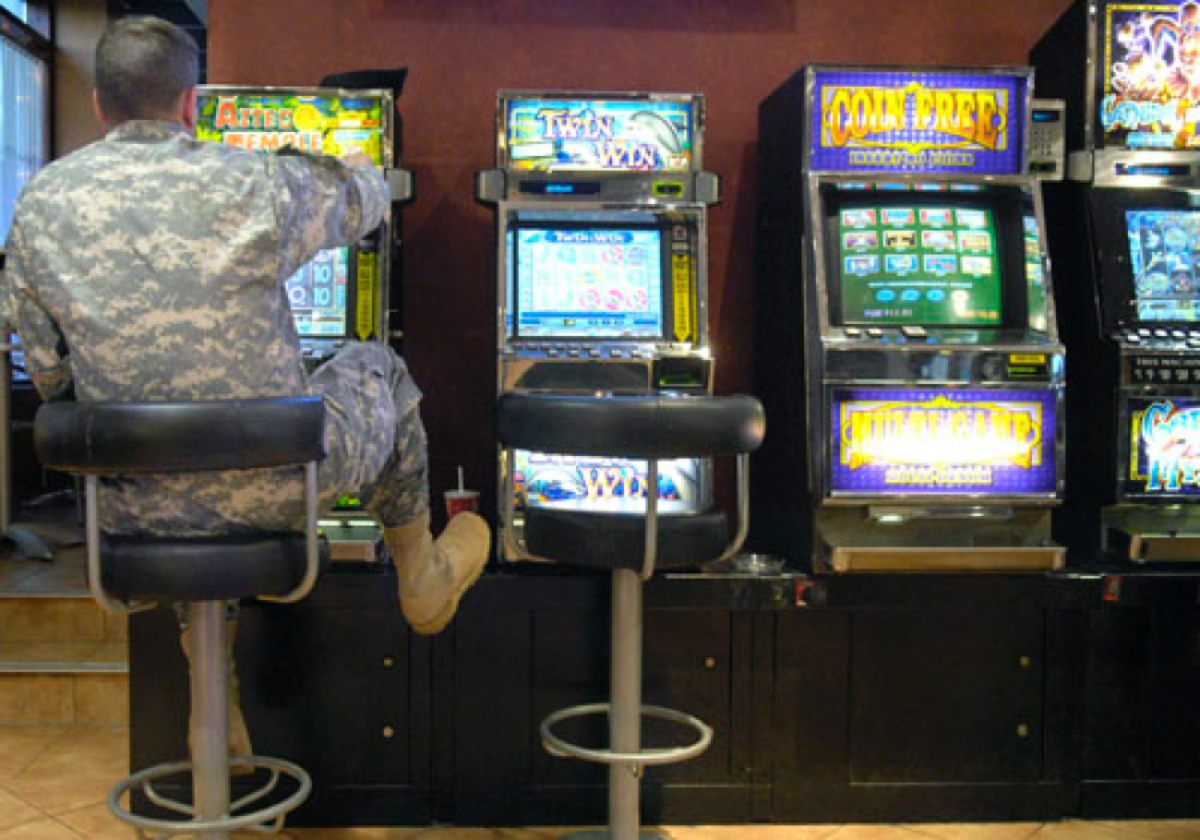Senate Committee Approves Gambling Addiction Research Among Military
Posted on: August 6, 2025, 11:34h.
Last updated on: August 6, 2025, 11:55h.
- The military could soon start studying gambling addiction among servicemembers
- Many US military bases overseas have slot machines
- Gambling addiction rates are higher among the military than the general public
The United States Department of Defense (DOD) could soon start studying how gambling addictions impact military members.

On Monday, the Senate Appropriations Committee approved a provision of the fiscal year 2026 Senate Defense Appropriations Bill that would, for the first time, qualify gambling addiction as an eligible research topic under the DOD’s Peer-Reviewed Medical Research Program (PRMRP). Supporters of the vote applauded the Appropriations Committee’s actions on claims that addressing gambling problems among military members will improve their overall quality of life both during and after service.
“The Committee’s action will finally give researchers, local VA clinicians, and military health officials the ability to better understand and address gambling addiction among those who serve,” said Derek Longmeier, president of the National Council on Problem Gambling’s Board of Directors. “We’re grateful to our allies in Congress, industry partners, and the public health community for making this progress possible.”
Established in 1999, the PRMRP is a congressionally-directed medical research initiative, with the mission of improving the health, care, and well-being of military servicemembers, veterans, and their families.
Military Gambling
Unknown to most civilians is that gambling problems run rampant among military members. Many overseas US military bases have slot machines, as the games of chance have in the past been considered as innocent ways for soldiers to unwind and take their minds off the critical duties at hand.
There remain more than 3,000 slot machines on military installations overseas, which generate about $100 million a year for the federal government.
Some, however, struggle to keep their play in check. A January report from Casino.org relayed that US government charge cards racked up hundreds of thousands of dollars in improper expenses at foreign casinos during the 2023 fiscal year.
The NCPG says nearly 20 million American adults experience problematic gambling behaviors. Military communities, the nonprofit says, remain “disproportionately affected.”
Servicemembers and Veterans facing gambling addiction deserve the same level of support and understanding we’ve worked to build around PTSD, depression, and other behavioral health challenges,” said Sen. Ben Ray Luján (D-New Mexico). “This provision is a critical step toward recognizing the realities our military community faces and ensuring the federal government invests in the basic, foundational research needed to support recovery.”
The NGCP estimates that as many as 56K active-duty servicemembers of the US Armed Forces meet the criteria for gambling disorder. Veterans, the organization says, are two to three times more likely to develop a gambling problem.
Less than 10% of afflicted military members and veterans suffering from a gambling disorder seek help, the NCPG adds.
Screenings Shortfall
In 2019, the National Defense Authorization Act sought to mandate annual screenings of all servicemembers for gambling disorders. However, the NCPG says that without federal research funding, the military and Veterans Affairs lack the data and tools necessary to intervene and provide “evidence-based care.”
If the Defense Appropriations bill is enacted into law, as expected, the Appropriations Committee’s vote to include gambling addiction research would mark the first “federally recognized pathway for research into gambling addiction in the military.”
No comments yet